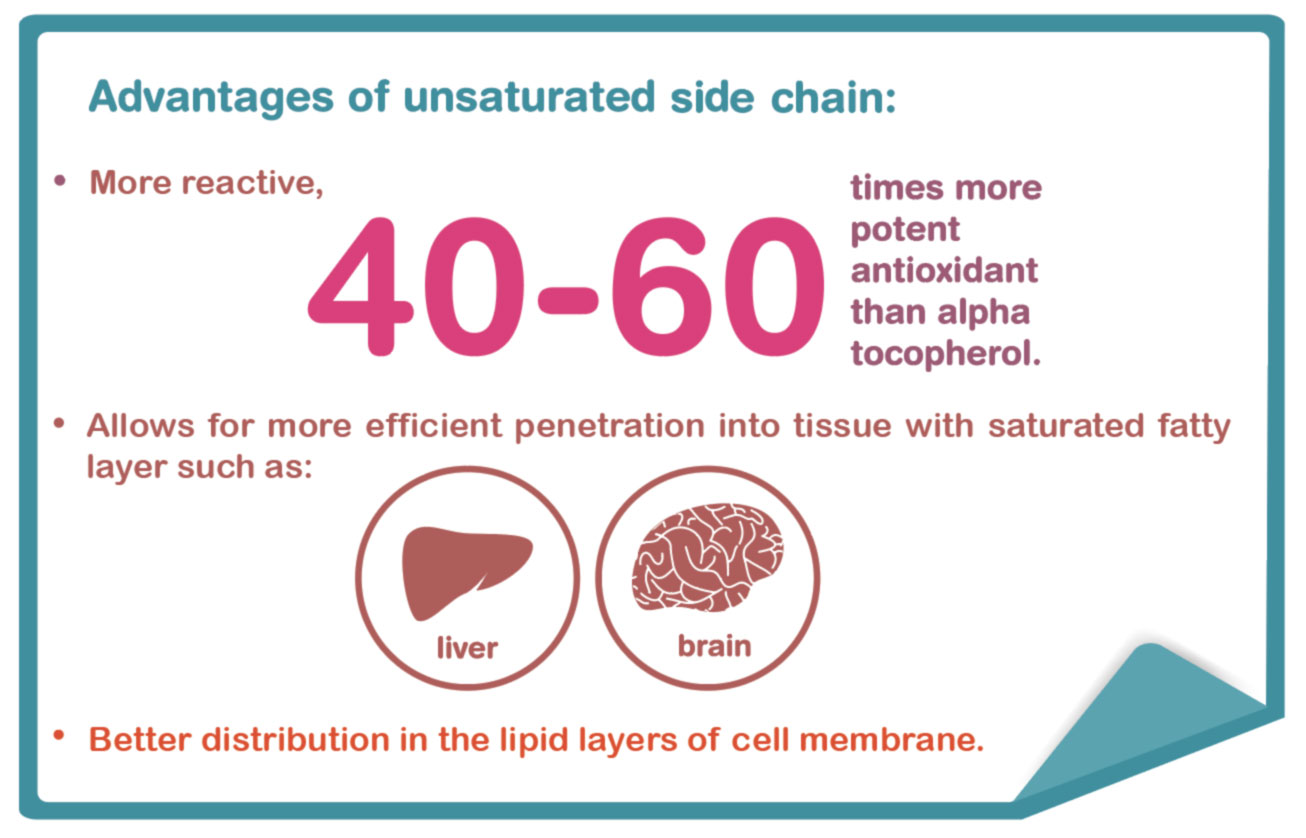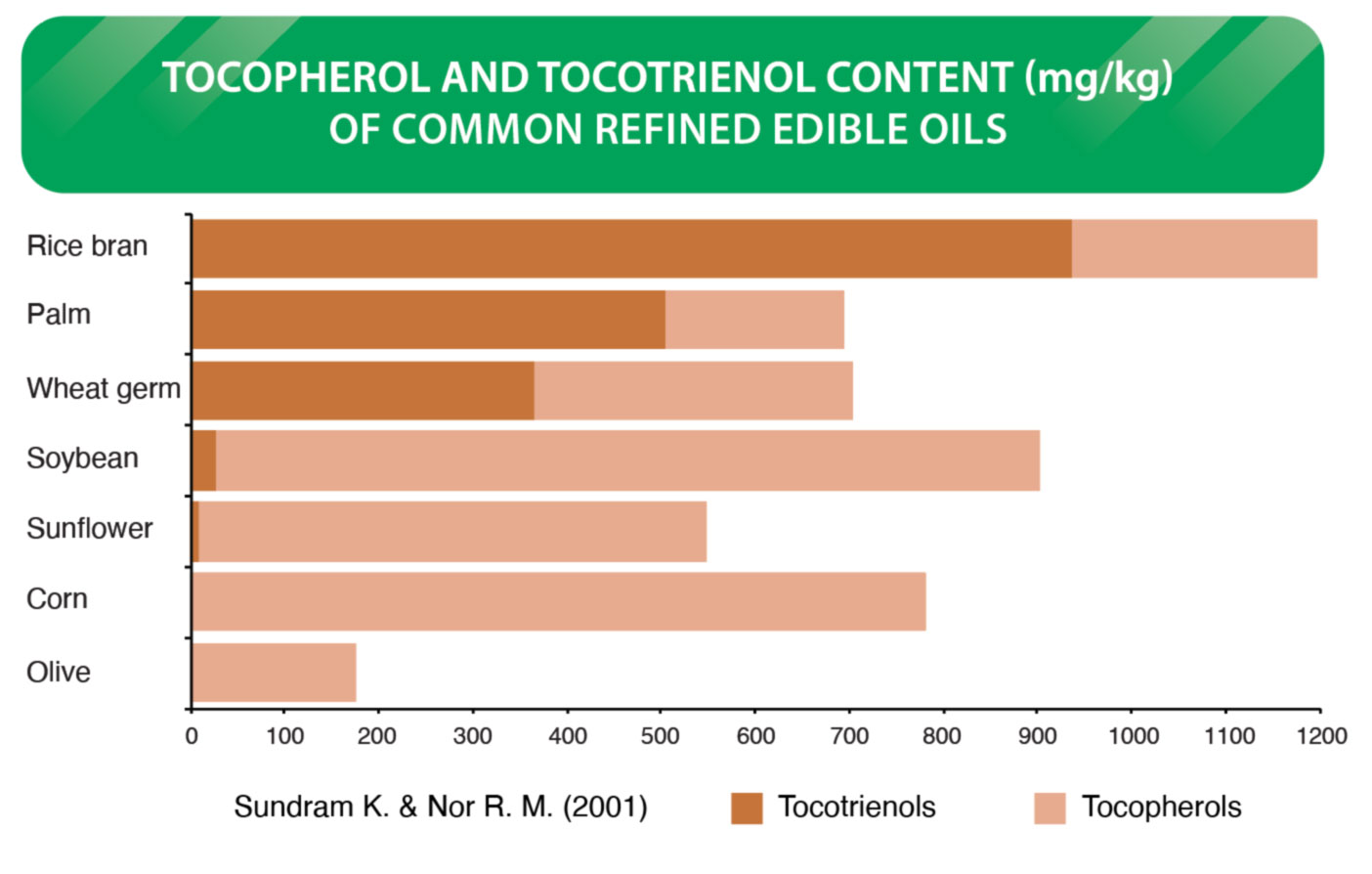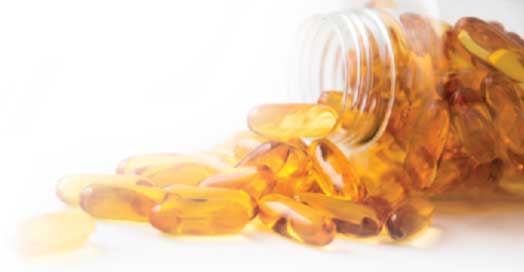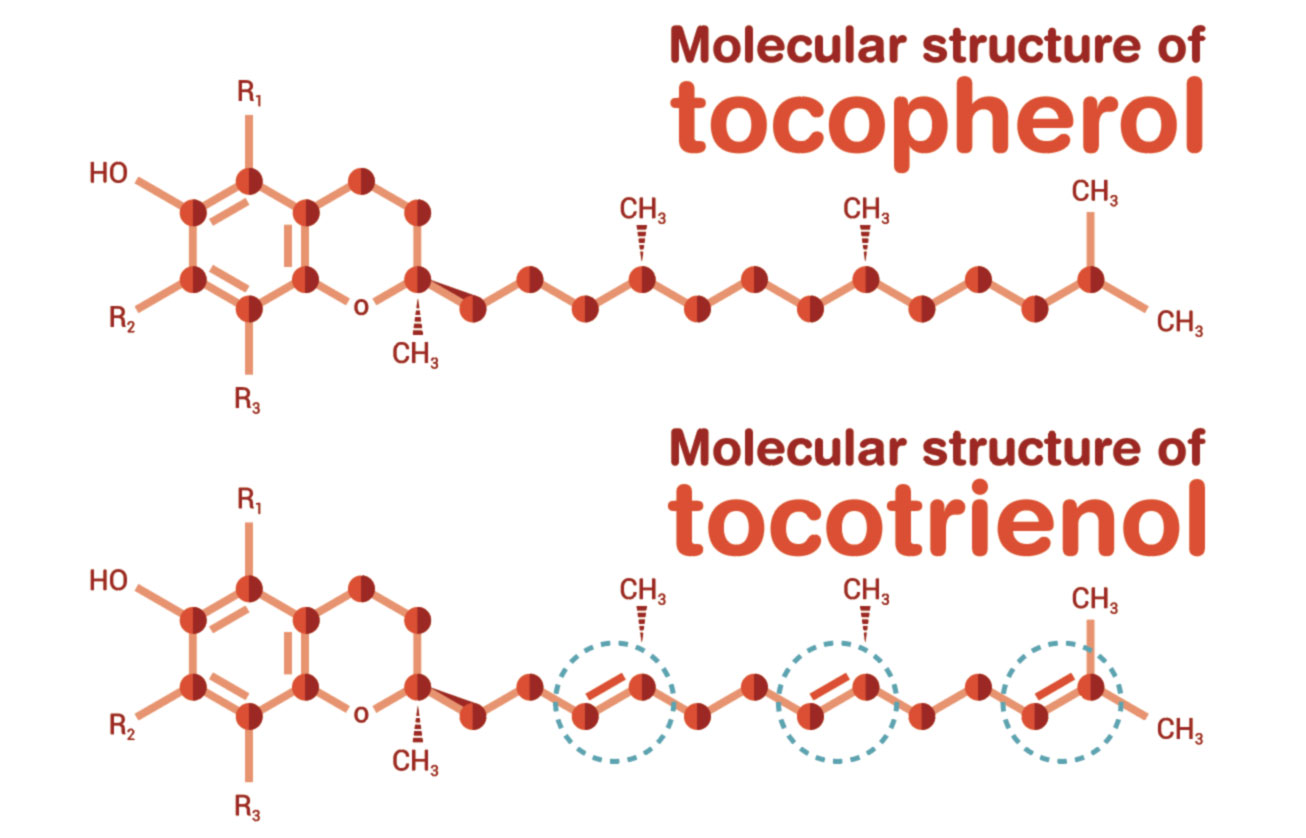The Neuroprotective Potential Of Natural Vitamin E Tocotrienols
NOT ALL VITAMIN E IS CREATED EQUAL: THE AMAZING TOCOTRIENOLS
In nature, vitamin E exists in 8 different chemical forms. There are 4 tocopherol isomers (alpha, beta, gamma and delta tocopherols) and 4 tocotrienol isomers (alpha, beta, gamma and delta tocotrienols). Vitamin E is a fat soluble antioxidant that protects the cells from the damaging effects of free radicals. Besides that, it is also involved in immune function, cell signalling, regulation of gene expression and other metabolic processes (Traber, 2006). Tocotrienols are one of the most fascinating members of the vitamin E family. Unlike tocopherols, tocotrienols have unsaturated side chain, which allows efficient penetration into tissues that have saturated fatty layers such as the brain and liver (Suzuki et al., 1993).
TOCOTRIENOLS ARE NATURAL NEUROPROTECTIVE VITAMIN E
The brain has an intricate and massive blood vessel network. Any damage to the fine blood vessels can lead to injury and degeneration of affected brain tissues. A common sign of the injury is White Matter Lesions (WMLs).


REFERENCES:
- Traber M. G. (2006). 10th ed. Baltimore, MD: Lippincott Williams & Wilkins (pp 396-411).
- Suzuki Y. J., Tsuchiya M., Wassall S. R. et al. (1993). Biochemistry. 32 (40): 10692–10699.
- Perea, R. D., Rada, R. C., Wilson, J. et al. (2013). Journal of Alzheimer’s Disease & Parkinsonism. 3: 123.
- Debette, S., & Markus, H. S. (2010). BMJ: British Medical Journal. 341: 3666.
- Gopalan, Y., Shuaib, I. L., Magosso, E. et al. (2014). Stroke. 45(5): 1422-1428.
- Sundram, K., & Nor, R. M. (2002). Oxidative Stress Biomarkers and Antioxidant Protocols (pp. 221-232). Humana Press.


About 50 percent of our brain is made of white matter. The health of our brain’s white matter affects overall cognitive performance and functions (Perea et al., 2013; Debette & Markus, 2010). This is also the area of the brain most often affected by stroke (Debette & Markus, 2010).
The neuroprotection potential of tocotrienols was demonstrated in the study on WMLs. Gopalan et al., (2014) investigated the brain white matter protection of palm oil-derived tocotrienols in patients with MRI-confirmed WMLs. The 2-year research found that tocotrienols can attenuate the progression of WMLs compared to placebo. The mean WML volume of the placebo group increased after 2 years, whereas that of the tocotrienol-supplemented group remained unchanged.
The tocotrienols’ ability to slow down the progression of WMLs may play a beneficial role in the preventive management of neurodegenerative diseases associated with cognitive impairment or dementia, when combined with current standard therapies.
TOCOTRIENOLS ARE NOT WIDELY FOUND IN NATURE
Malaysia is fortunate because crude palm oil, a natural resource that the country has in abundance, is one of the richest source of tocotrienols. Tocotrienols from Malaysian palm oil are extracted in a concentrated form to provide optimal benefits when consumed as a nutritional supplement.

